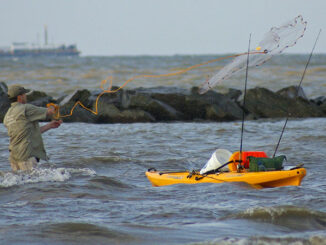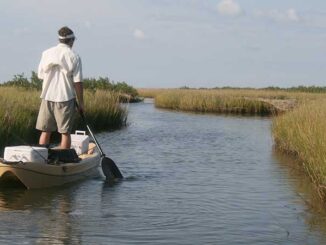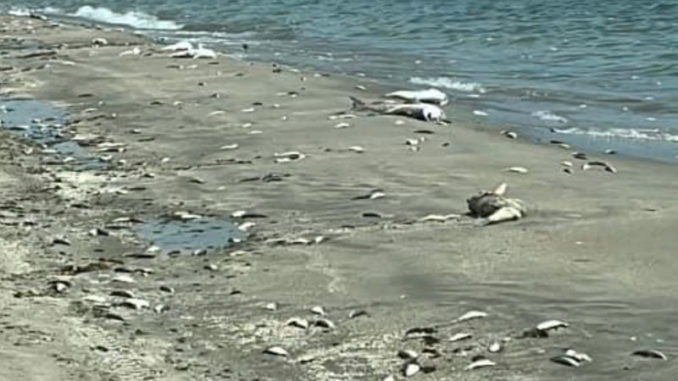
After latest fish kills, will state continue free passes for pogie boats?
People have had enough.
That’s pretty much the reaction of sportsmen, conservationists and the public in general concerning the latest carnage of dead fish floating in the Gulf of Mexico along Louisiana’s coastline.
Coastal areas along Holly Beach and Rutherford Beach were left looking like the waters of a third world country the week of September 11-15 after at least three separate menhaden net spills, caused by Omega Protein and Daybrook Fisheries.
These companies dumped an estimated 850,000 fish in the waters off Cameron Parish during three incidents over four days in mid-September. The companies confirmed the events first reported by residents and other fishermen.
Dead fish everywhere
Some of the dead fish floated into deeper water and some washed up on the beaches by the thousands, leaving a stench and unpleasant view for days. Amid the dead menhaden (pogies) were also hundreds of redfish, a species prized by recreational fishermen and hugely important to the state’s economy. Such wasteful acts contribute to continuing sharp redfish population declines in recent years, especially among bull reds, the largest of the species.
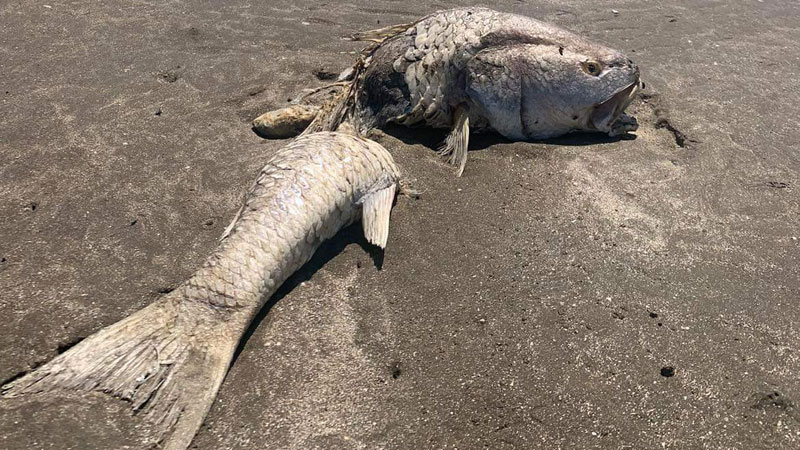
The two main culprits are both foreign companies, Omega Protein of Canada and Daybrook of South Africa. While these outrageous acts of wanton waste have only recently gained headlines, sportsmen say they have been going on for years with no oversight or penalties.
But while the news media showed details of the disastrous practices by pogie boats and the public ranted on social media, apparently the people in charge aren’t overly concerned.
A penalty
There was little official response or comment from the Louisiana Department of Wildlife and Fisheries or the Louisiana Wildlife and Fisheries Commission, other than they are investigating…again. They did reportedly cite Omega for failing to report one spill within two hours as required by law, according to LDWF Assistant Secretary Patrick Banks. A penalty will be determined when the value of the fish is determined, he said. No other information has been offered officially.
“What Daybrook and Omega are doing to our coast must stop now. People have clearly had enough,” said David Cresson, CEO of the Coastal Conservation Association, a group with more than 25,000 members. “It’s pretty unbelievable we are still letting this stuff happen along our coasts, meanwhile we are getting stricter redfish regulations enacted on recreational fishermen next year and zero further regulation on the pogie industry. Something must be done to fix this. We need a 1 mile buffer zone!”
Not rare at all
Others spoke out as well.
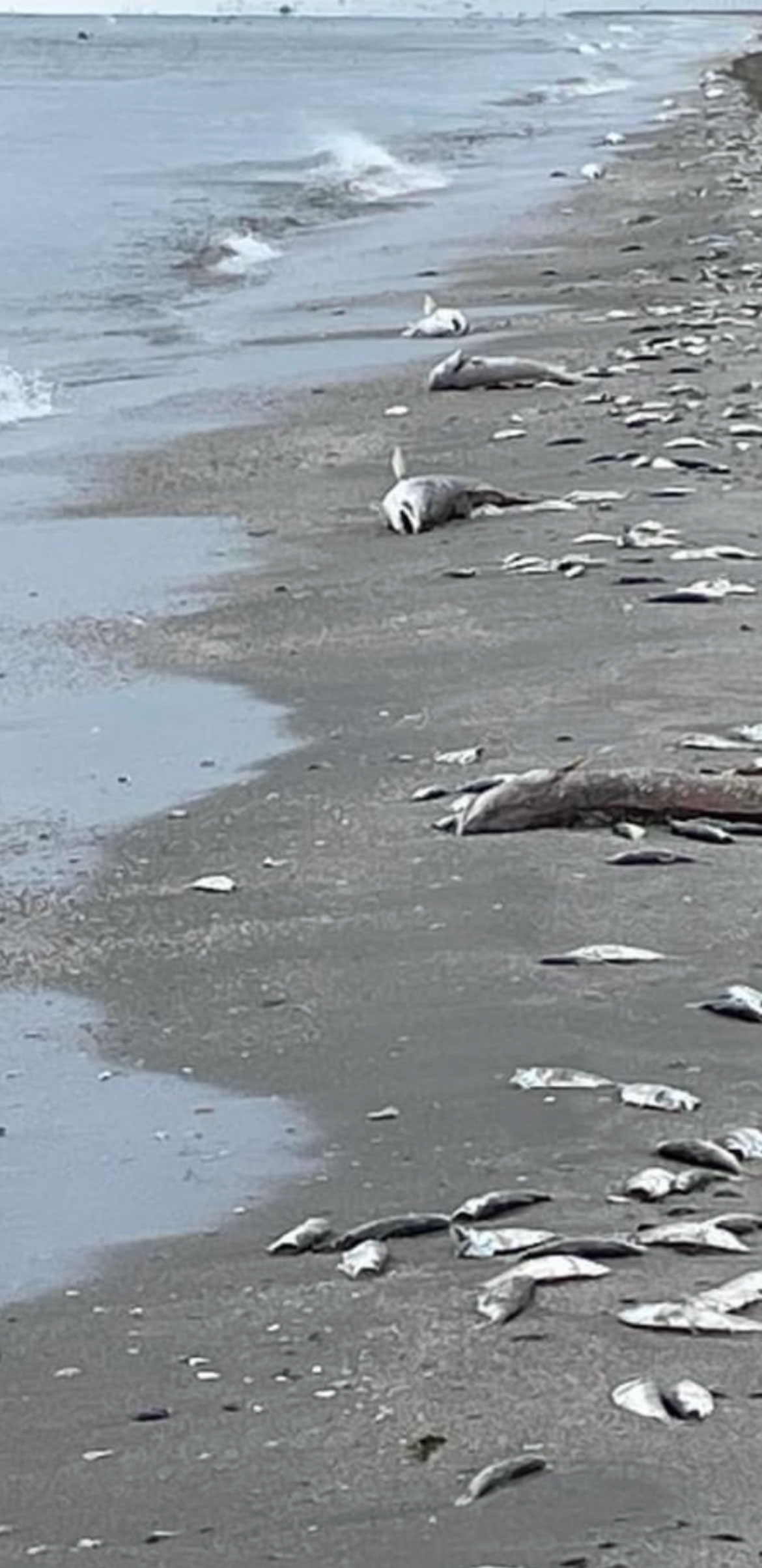
“The menhaden industry likes to talk about how rare these incidents are and how unfortunate they are, but they are simply not rare,” said Chris Macaluso, marine fisheries director for the Theodore Roosevelt Conservation Partnership. “And to see hundreds of redfish dead on the beach, you can’t help but be concerned.”
In 2022, when a similar incident happened and many state elected officials called for much more stringent regulations like other states along the Gulf have, it was killed in committee.
It prompted one Louisiana fisheries representative to say this: “We’re the only Gulf state to allow this industry,” said Benjamin Graham, a member of the Louisiana Finfish Task Force, which advises state agencies on fishing matters. “When we’re dead last on something, we should probably re-evaluate.”
The latest waste led several lawmakers to send letters to Louisiana Department of Wildlife and Fisheries Secretary Robert Shadoin, who was recently appointed to the post after the previous two secretaries were forced to resign amid controversies.
Stine’s letter
One letter dated Sept. 22, 2023, was from Senator Jeremy Stine from District 27. The letter summed up what most people who aren’t on the company’s payroll, officially or not, are feeling.
In his letter, Stine said, “During the week of September 11-15, our coastal areas were impacted by three separate menhaden net spills or tears, caused by Omega Protein and Daybrook Fisheries. Our area beaches like Holly Beach and Rutherford Beach were covered by rotting carcasses of menhaden and other bycatch. That bycatch included many large redfish, which as we understand, are experiencing challenges across our coast, to the point where recreational limits are being lowered.
“Unfortunately, it seems that these are not rare or isolated incidents. Our area beaches have been covered with dead fish multiple times per summer after menhaden boats have been in the area fishing near the beaches. The net tears from last week come almost exactly one year after an entire net containing roughly 500,000 pounds of menhaden was cut by Omega Protein near Holly Beach, causing an enormous fish kill and a dangerous hazard. In July, a Daybrook Fisheries vessel was cited for illegally harvesting 86,000 pounds of menhaden from restricted waters. In both of these cases, the offending companies made public apologies, ensuring us that these incidents were rare, and were the result of poor decisions by their ship captains. Yet, here we are again faced with more ecological damage and more concerned, frustrated constituents.
“I urge you to take action to ensure that our beaches and fisheries are protected from future incidents like this. Extend the menhaden harvest buffer zone to one mile. At one mile, there is plenty of room for the commercial menhaden fishery to operate safely and effectively off the coast.”
Big business
The pogie industry in Louisiana is big business for a few companies.
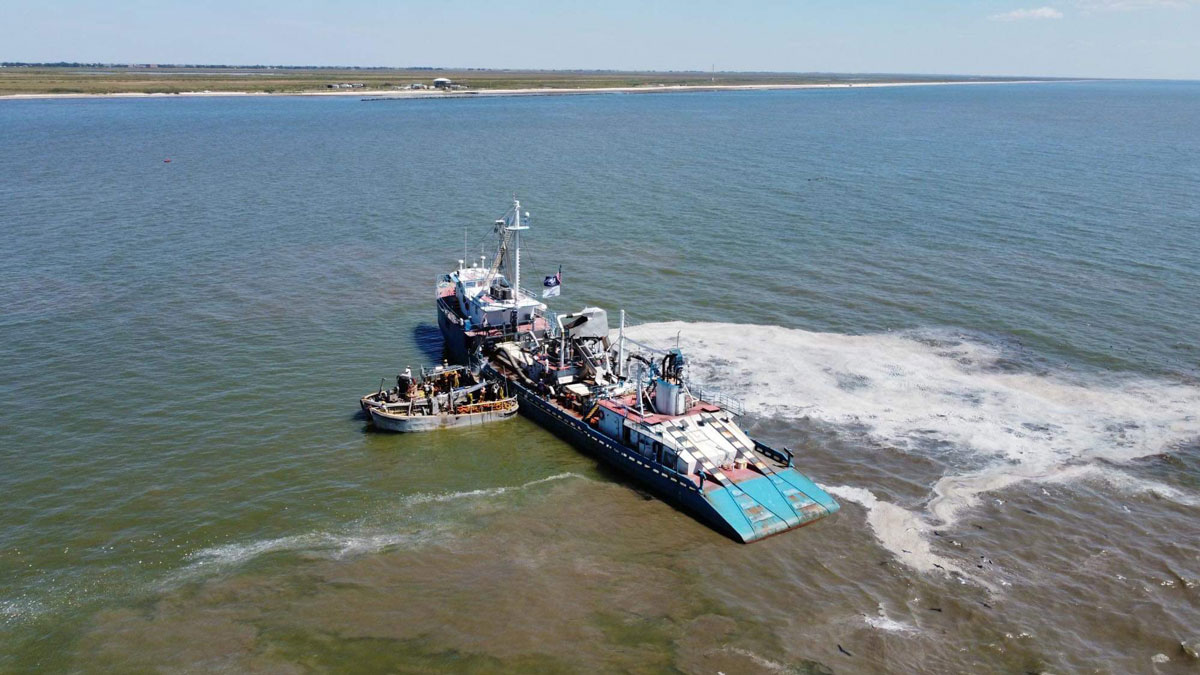
According to recent reports, more pounds of pogies are caught in Louisiana waters than shrimp, crab, crawfish and oysters combined — a total of more than 611 million pounds valued at $66.4 million dollars annually. Other top commercial catches in the state are shrimp, 65.4 million pounds worth $91.6 million; crabs, 34.3 million pounds valued at $54.8 million; crawfish, 7.9 million pounds valued at $10.9 million and oysters, 3.2 million pounds valued at $23.8 million.
